Friendly Young Ladies (42 page)
Read Friendly Young Ladies Online
Authors: Mary Renault

Postmodernist readers too will find much that is of interest in
The Friendly Young Ladies.
Although Renault would undoubtedly have been horrified by the term, her ideas are not at all discordant with “queer theory.” Like queer theorists, Renault questions easy assumptions about the connection between gender identification and sexual orientation, as is seen in her feminine Helen’s commitment to homosexuality and her masculine Leo’s ostensible assumption of heterosexuality. Furthermore, though Renault would not have coined a phrase such as “gender is performance,” in the instance of Leo, who can look like a teenage boy but can also look attractively feminine when she wishes (as she does dressed for the houseboat party), Renault presents a fine illustration of Judith Butler’s concept, central to queer theory, of the performativity of gender.
Renault also scoffs at notions about the hardwiring of sexual orientation, such as were propounded by nineteenth-century sexologists and embraced by Radclyffe Hall; and, again like queer theorists, she raises interesting questions about what constitutes sexual identity. Through her characters, Renault argues that sexuality is fluid and flexible: Norah, Peter’s nominal fiancée, is easily seduced by Leo; Helen enjoys heterosexual sex but prefers being with women because they’re more considerate; Leo lives for most of her life as a lesbian, fearing heterosexuality, and then falls in love with a man.
In the penultimate pages of the book, Renault seems to lapse into language that, in its patent essentialism, is a surprising departure from the rest of the novel. Standing in the moonlight with Joe, for instance, Leo is suddenly overwhelmed by “the consciousness of being a woman”; and after Leo decides she will go to Joe, Renault describes her weeping as being “release without humiliation; the tears of a woman.” However, Leo’s history calls into question the stability of her sudden womanliness. In fact, only moments before she weeps the “tears of a woman” she has been crying “like a beaten boy.” Thus, to the end, Leo remains a character much like her creator, whose “inner persona occupied two sexes.” Though Leo may gather her manuscript, typewriter, and essential books in preparation for exiting from her lesbian life, Renault hints at a very postmodern inconclusiveness: There is good reason to believe that she will be back.
Lillian Faderman
1
In a letter from Mary Renault to Colin Spencer, September 20, 1967, quoted in Caroline Zilboorg,
The Masks of Mary Renault: A Literary Biography
(Columbia, Missouri: University of Missouri Press, 2001), p. 2.
2
Kate O’Brien,
Spectator
, September 1, 1944, p. 204; Henry Reed,
New Statesman and Nation
, October 14, 1944, p. 256.
3
David Sweetman, Mary Renault: A Biography (New York: Harcourt Brace, 1993), pp. 104–105.
4
Zilboorg, p. 216.
5
Sweetman, pp. 252–53.
Mary Renault (1905–1983) was an English writer best known for her historical novels on the life of Alexander the Great:
Fire from Heaven
(1969),
The Persian Boy
(1972), and
Funeral Games
(1981).
Born Eileen Mary Challans into a middle-class family in a London suburb, Renault enjoyed reading from a young age. Initially obsessed with cowboy stories, she became interested in Greek philosophy when she found Plato’s works in her school library. Her fascination with Greek philosophy led her to St Hugh’s College, Oxford, where one of her tutors was J. R. R. Tolkien. Renault went on to earn her BA in English in 1928.
Renault began training as a nurse in 1933. It was at this time that she met the woman that would become her life partner, fellow nurse Julie Mullard. Renault also began writing, and published her first novel,
Purposes of Love
(titled
Promise of Love
in its American edition), in 1939. Inspired by her occupation, her first works were hospital romances. Renault continued writing as she treated Dunkirk evacuees at the Winford Emergency Hospital in Bristol and later as she worked in a brain surgery ward at the Radcliffe Infirmary.
In 1947, Renault received her first major award: Her novel
Return to Night
(1946) won an MGM prize. With the $150,000 of award money, she and Mullard moved to South Africa, never to return to England again. Renault revived her love of ancient Greek history and began to write her novels of Greece, including
The Last of the Wine
(1956) and
The Charioteer
(1953), which is still considered the first British novel that includes unconcealed homosexual love.
Renault’s in-depth depictions of Greece led many readers to believe she had spent a great deal of time there, but during her lifetime, she actually only visited the Aegean twice. Following
The Last of the Wine
and inspired by a replica of a Cretan fresco at a British museum, Renault wrote
The King Must Die
(1958) and its sequel,
The Bull from the Sea
(1962).
The democratic ideals of ancient Greece encouraged Renault to join the Black Sash, a women’s movement that fought against apartheid in South Africa. Renault was also heavily involved in the literary community, where she believed all people should be afforded equal standard and opportunity, and was the honorary chair of the Cape Town branch of PEN, the international writers’ organization.
Renault passed away in Cape Town on December 13, 1983.
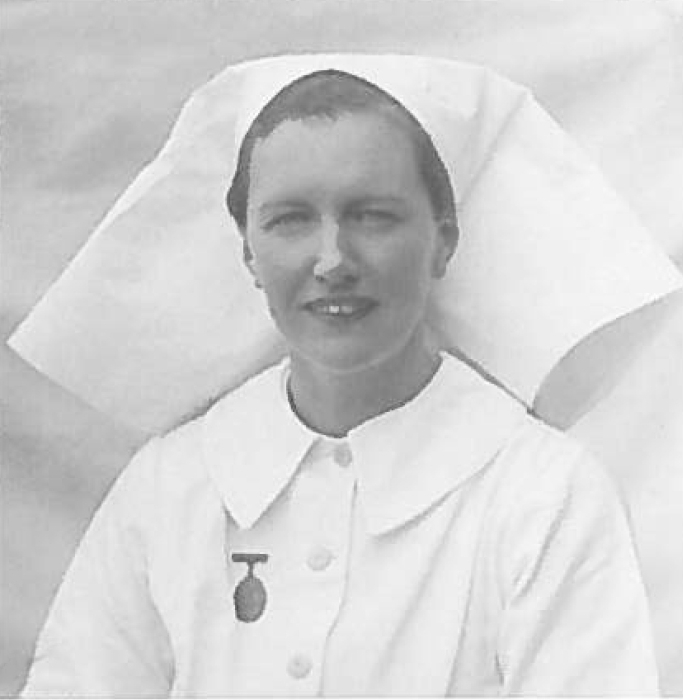
Renault in 1940.
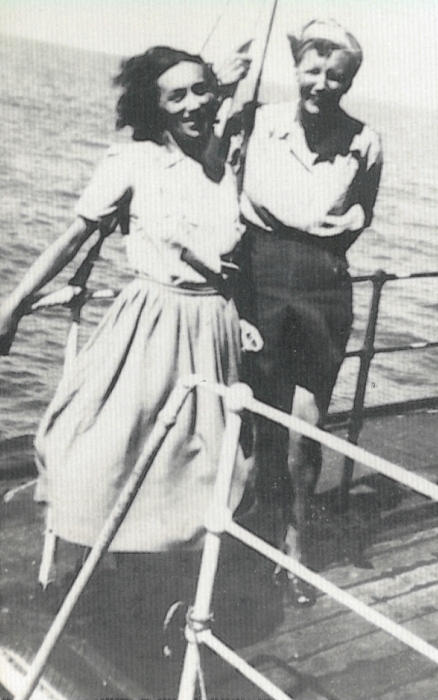
Renault and Julie Mullard on board the
Cairo
in 1948, on their way to South Africa, where they settled in Durban.
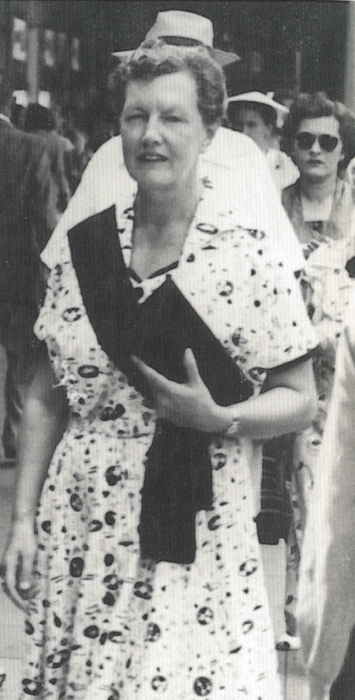
Renault in a Black Sash protest in 1955. She was among the first to join this women’s movement against apartheid.
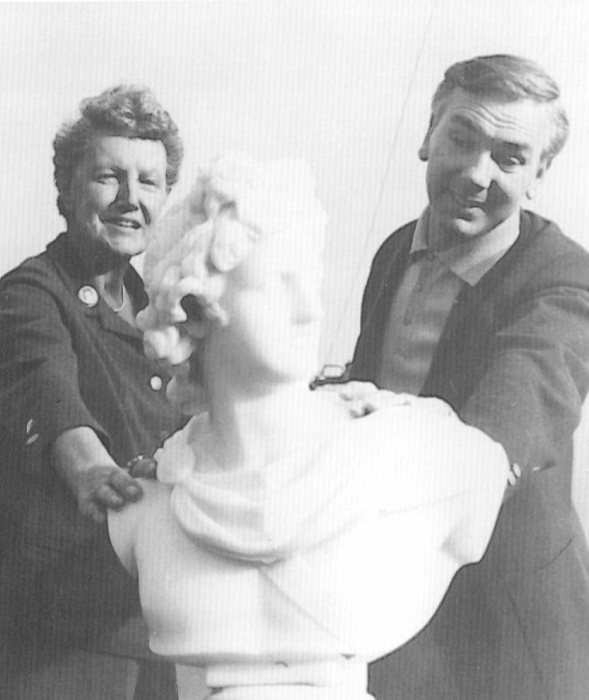
Renault and Michael Atkinson installing her cast of the Roman statue of the Apollo Belvedere in the garden of Delos, Camps Bay, in the late 1970s.
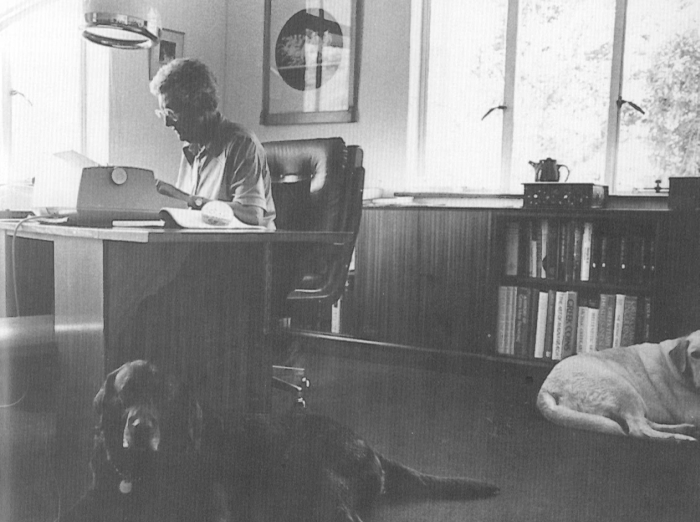
Renault working in her “Swiss Bank” study with Mandy and Coco, the dogs.
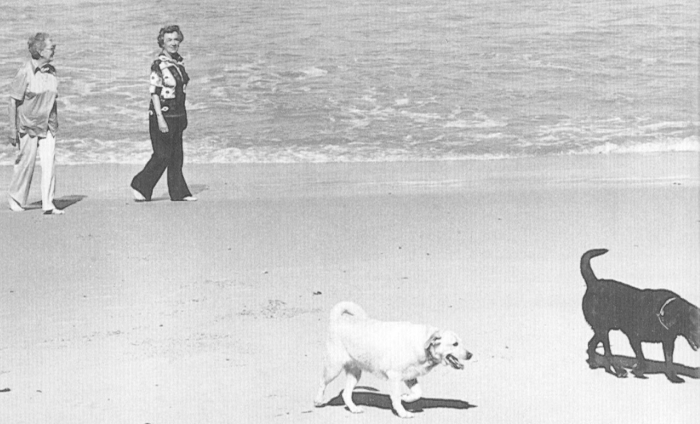
Renault and Mullard walking the dogs on the beach at Camps Bay in 1982.
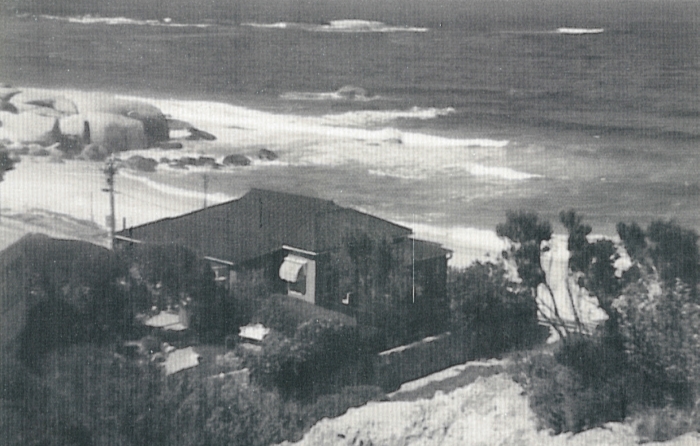
Delos, Greece, with a view over the beach at Camps Bay.
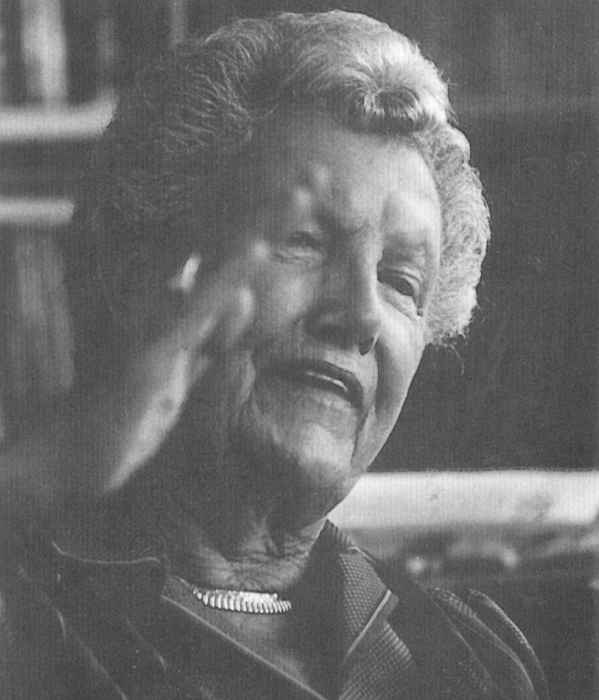
Portrait of Renault in 1982.
All rights reserved, including without limitation the right to reproduce this ebook or any portion thereof in any form or by any means, whether electronic or mechanical, now known or hereinafter invented, without the express written permission of the publisher.